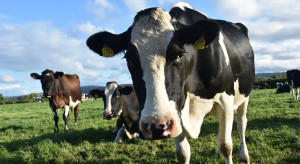More and more Dutch farmers are emigrating from the country to Germany, Denmark or Canada. The exodus may intensify further.
As reported by the German Agrarheute, more and more Dutch farmers are leaving their country and looking for new farms abroad. Dairy farmers dominate the emigrating farmers. They are looking for new farms in Germany, Denmark or Canada.
The reason for the increased emigration is, on the one hand, too stringent environmental regulations in the Netherlands and, on the other hand, little opportunities to develop farms. These include restrictive regulations regarding nitrates and phosphates, forcing people to abandon or reduce cattle or pig breeding, but also the decreasing availability of land for agricultural production resulting from the new regulations. Farmers who could continue producing have been put against the wall – they are forced to make costly investments, which, given the current decline in profitability, raise justified doubts.
The Dutch authorities do not keep statistics on the emigration of farmers and agricultural companies. However, this phenomenon is clearly demonstrated by real estate agencies operating in the Netherlands and Germany. The number of farmers from the Netherlands looking for a new farm outside the country is growing every day, according to a German industry portal. On the real estate market in the Netherlands, there are more and more offers for sale of agricultural and livestock farms.
Is there an exodus of Dutch farmers yet to come?
As Western media note, the exodus concerns not only individual farmers, but also larger agricultural enterprises. These most often choose the eastern German states in the former GDR, where it is easier to lease or buy large areas of land, or they go overseas to Canada.
Experts suspect that the real exodus of farmers from the Netherlands will only occur when buyouts and payments for those who want or need to stop production start. According to conversations with farmers from the Netherlands conducted by Agrarheute, the Dutch government gave its farmers too little time to transform their farms. Meanwhile, in addition to the obligation to implement emission limits and welfare regulations, they also have to adapt to other new EU requirements.
– .


